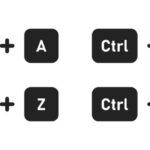We have all heard the term, “mystery shopping”. It is the act of anonymously shopping your own store or product in an effort to measure employee and product integrity. Put another way, you look at your dealership through the eyes of your client. This practice has been around for more than a century and the term, “mystery shopping” was coined in the 40’s.
Even with, or due to, the advances of modern technology, the need for dealerships and business owners to mystery shop themselves has never been higher. You want to be the most successful you can be. You want to do the most for your customers. Yet, sometimes being “in the scene” keeps you from seeing what is “on stage”. Getting a different perspective on what you see every day will help maximize profits and help you solve problems for your customer.
It is hard to anonymously shop your dealership in person because your employees (should) recognize you. In that case, you might ask a friend or hire a company to evaluate your store and your employees for you. However, when it comes to the Internet, you can and should mystery shop yourself at least once a month. Instead of mindlessly playing games on that tablet in the evening, you might instead shop for your cars and yourself. If you find yourself killing time at the car lot playing Spider Solitaire, you could be peeking behind the curtain and seeing what is “on stage”.
There are two important things you want to look for when shopping your own dealership and they can either get you in hot water with advertising regulations or cost your dealership tens of thousands of dollars in lost profit. The first thing you want to do is know where your vehicles are getting advertised and the second thing you want to know is who gets your sales leads.
The easiest way to start this mystery shopping is to Google 1-3 of your VINs and 1-3 of your Year Make Models. If you have something unique, or something that has been in stock, use them over the newer, more average vehicles.
Knowing where your cars are advertised is just the first step. Once you find your vehicles you want to be sure the ad copy itself is compliant with the advertising regulations in your area. You want to be sure you find your listings on all the sites you are paying to advertise with. Nothing is worse than paying for advertising that you are not getting. Are your listings accurate and up to date? Pricing a car to a customer at a different price than what they saw online undermines your credibility. Some of you will find your cars on websites you had no idea you were advertising with. If so, you want to pay extra attention to several things like, is the processing fee displayed properly, is it your phone number listed for the shopper to call, and do they identify your dealership by name. In some cases we have seen a client’s inventory get “scraped” from one site and imported into a “link farm” site. Dealers have received adverse action letters from the Virginia MVDB in recent history because these scrapers did not properly display these “free” ads, even though the dealerships had no idea it was happening. If you are able to detect this type of activity occurring with your online listings, we encourage you to first contact the advertiser and demand they fix the ads or remove them. Then, we suggest you inform the MVDB of your findings and actions. They may be able to help get action from the offending site, if you cannot.
Now that you know where you are advertising on the web, the next step is to see where your leads are going. The first good reason for doing this is to witness first-hand what you are paying for. Many dealerships pay for advertising they never see. If you look at it from your shoppers’ eyes, though, you will see things you may have been over-looking. You want to follow the path to a sale as if you were the shopper. Take a minute to verify the credit application works. Fill out an inquiry everywhere you can and look for issues you might run into if you were a real shopper. When you submit these leads, be sure to use a personal email account. By doing so you will ensure you get all the responses to the Call To Action you just performed. Yes, your staff might recognize your email, but still you will be able to judge things like reaction time, content of reaction, etc.. More importantly, though, if these online advertisers are sharing your leads with other car dealers, you have then discovered a huge hole in your profit stream!
I recently helped an employee purchase a car and did some online research. I was visiting a site to which we feed inventory data when I found one of my client’s cars listed and I flippantly sent him a lead making a comment about the car. The next day, I began receiving emails from that website wanting me to apply for credit and consider other similar cars belonging to other area car dealerships. My client did not know this website was reaching out to me this way. If you are paying good money for advertising, you probably want to be sure you are not helping your competition in the process. We have had clients tell us leads created from their listings were actually sold to others. If there is a credit application connected with your online listings you need to be sure you are the only one getting those leads or else you will not be in compliance with all the privacy laws you contend with as a dealer. Most dealerships have privacy policies in place which forbid the idea of selling that application to someone else.
Once a month you should take a few minutes to shop yourself. Follow a call to action or two and then verify you get contacted by your dealership and not the one down the street. Being vigilant will help keep you out of trouble with the law and at the same time boost profits.
Happy shopping!







